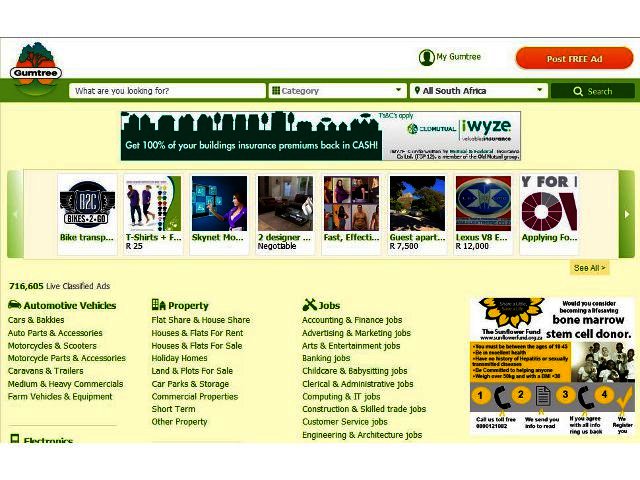Payment scams are once again doing the rounds and sellers are warned to be careful when trading online.
Hundreds of thousands of South Africans safely buy and sell second hand goods online every day, especially cars and electronics, to supplement their income or to recoup the money spent on unwanted items. However, there have been reports of scammers targeting sellers across multiple platforms with “fake payment” scams before absconding with the goods.
“The scams can be very convincing,” says Claire Cobbledick, Head of Marketing for Gumtree South Africa. “A seller posts something online, agrees to an offer and waits for payment. Proof of payment is emailed through or sent via SMS. They hand over the goods, only to find out that the money never clears in their account – or was never paid in to begin with.”
Cobbledick says the scam is very simple to execute. “There are usually two ways of tricking someone into thinking you’ve made a payment when you haven’t. The fraudster will make a payment via a cheque deposit and the seller will receive a notification from the bank stating that payment was made. However, cheques take two weeks to clear, so the fraudster will collect the goods in question and then simply cancel the cheque.”
The other method of scamming involves emailing or SMSing a fake proof of payment to the seller. “It’s fairly easy to replicate a Proof of Payment PDF or SMS and make it look convincing,” she says. “The scammer will also typically display a great sense of urgency and try to collect and leave with the goods as soon as possible, pretending to be in a great rush or saying that he or she is only in town for one day so the deal has to happen immediately or not at all.”
Cobbledick says the only way to assure that money has really been paid into your account is to phone your bank or to check your internet banking statement. “Money that has been paid into your account with a cheque will typically remain in pending status for some time and reflect that way in your statement. Be very clear with all buyers that you will not hand over any money until you have confirmed that the money has cleared in your account. A payment notification is not a guarantee that funds have cleared.”
It is also important not to accept any other form of payment besides cash or EFTs. “Don’t swop goods for high-value items such as jewellery unless you are a qualified appraiser and able to assess the value at the exact moment of the swop. Cheques and promissory notes are very risky and should not be accepted.”
Should you find yourself the victim of such a scam, Cobbledick advises customers to reach out to their banks, the police and the platform they’ve been using. “Always report the incident and keep records of all transactions so that fraudsters can be traced and blocked from accessing sellers.”
Cobbledick says that customers should always trust their instincts. “Don’t rush into a sale right away,” she advises. “If something feels off about a buyer, you are not under any obligation to sell and you shouldn’t be pressured into selling something before all the safety boxes have been firmly ticked.”





